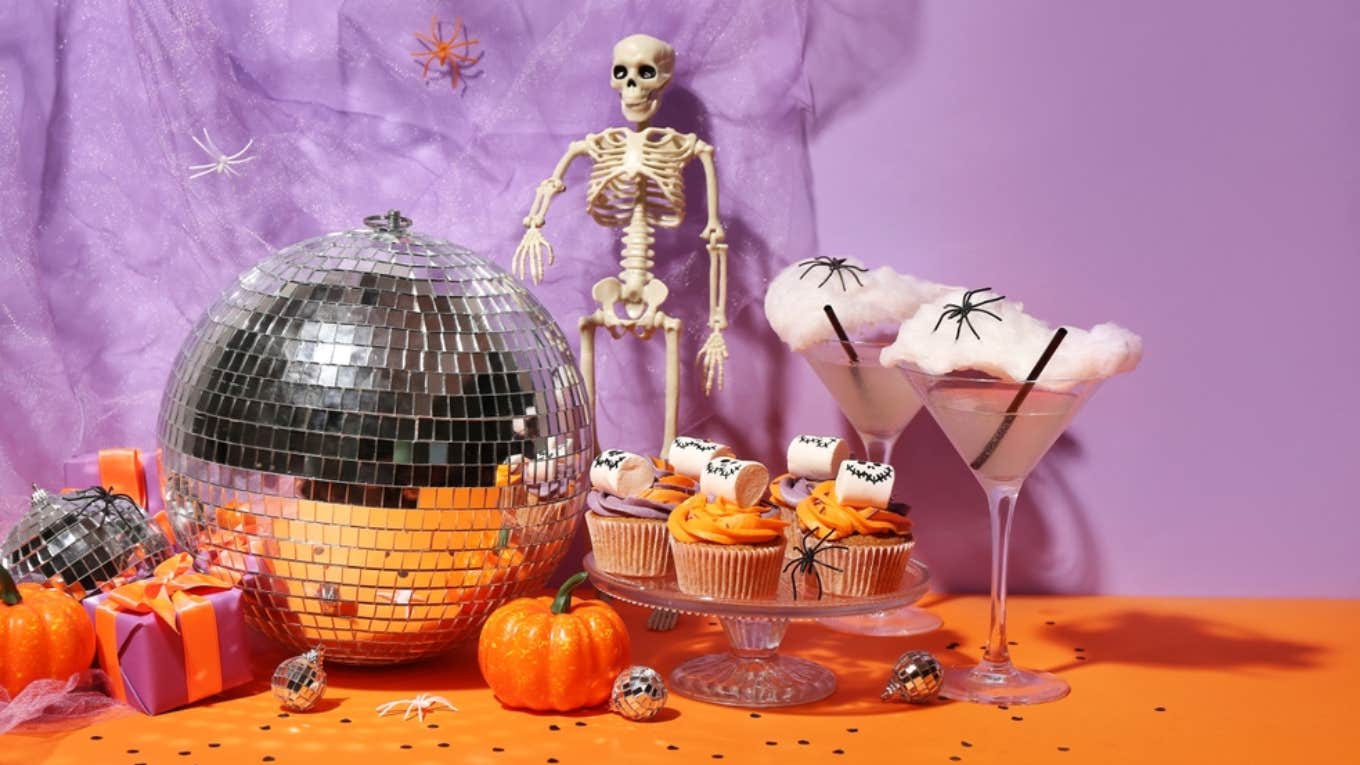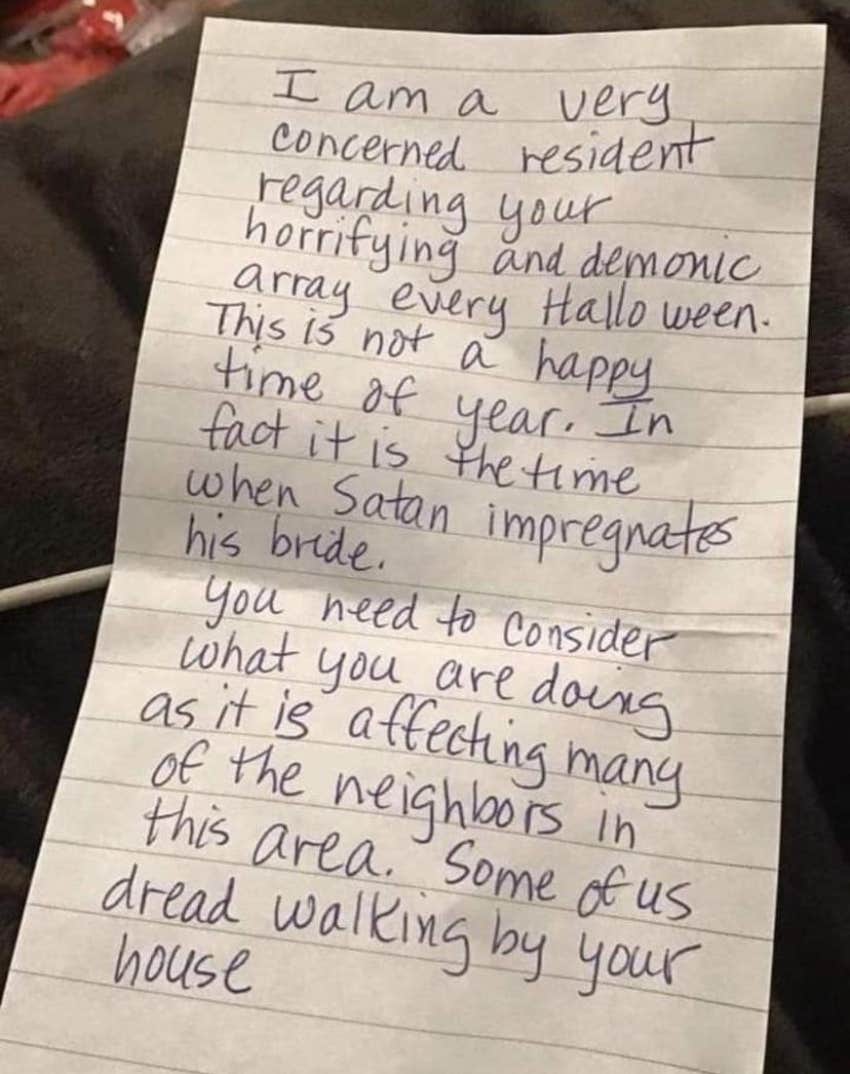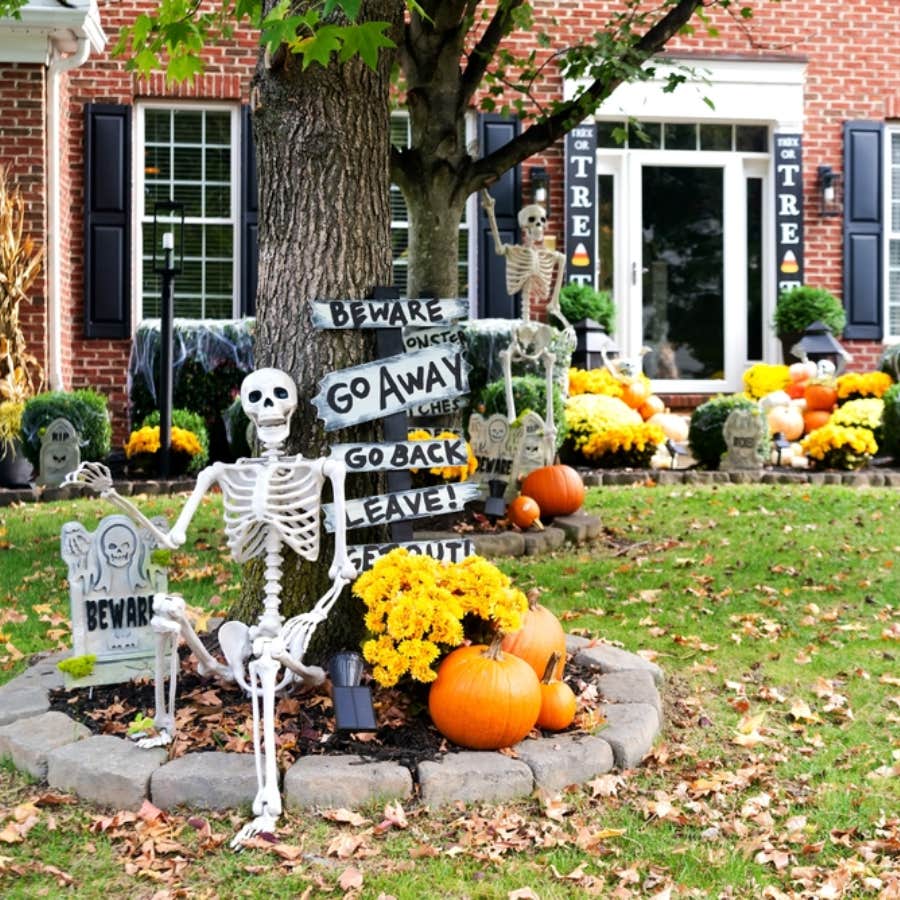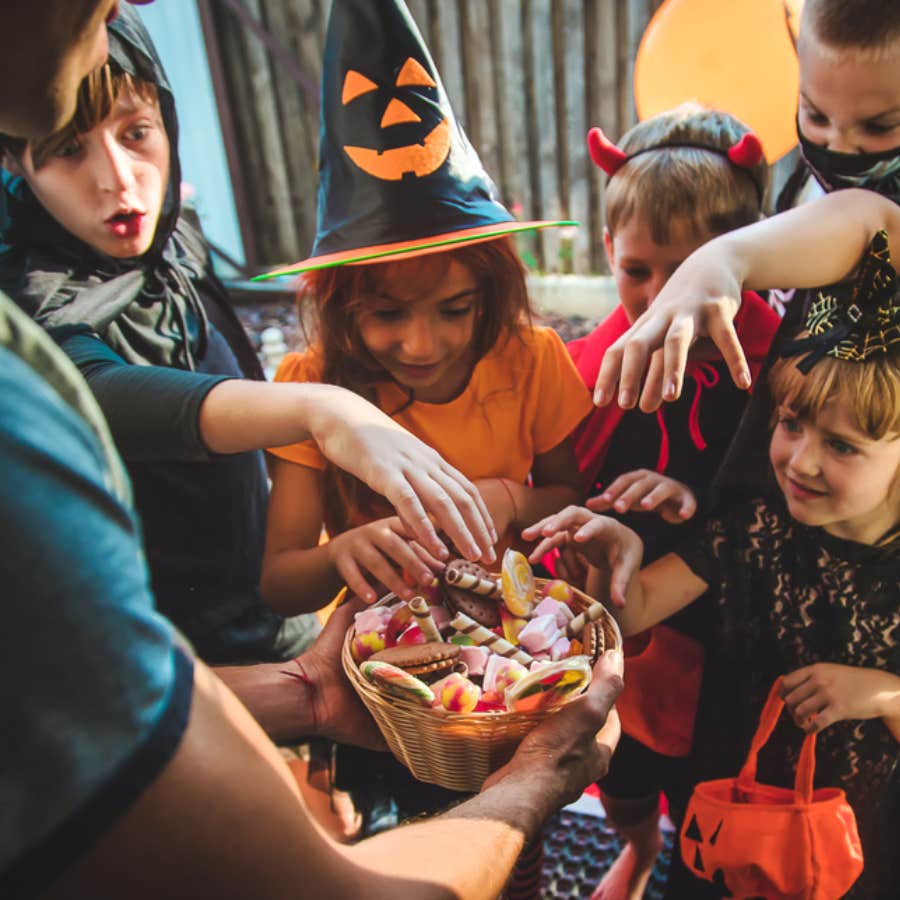'Concerned Resident' Urges Neighbor To Reconsider Their Halloween Decorations — 'Some Of Us Dread Walking By Your House'
Some people, particularly within the Christian community, still associate the holiday with negative aspects.
 Pixel-Shot / Shutterstock
Pixel-Shot / Shutterstock As Halloween quickly approaches, some people are decking out the outside of their homes with displays of skeletons, Jack-o-lanterns, graveyards, and blow-up spiders. However, not everyone celebrates Halloween, and they may choose to keep their homes decoration-free.
While they are entitled to their own beliefs, so are the people who celebrate Halloween. Although, not everyone respects others’ differences in opinions.
One person shared the perplexing note they received from a neighbor who admitted that they were “concerned” about their Halloween decorations since it was not a “happy time” of the year.
The resident expressed their dismay regarding their neighbor’s ‘horrifying’ and ‘demonic’ Halloween decorations.
The person shared a photo of the handwritten note from their neighbor with the subreddit r/exchristian. The note begins with the neighbor sharing that they are a “very concerned resident.”
The reason for their concern is due to what they call the “demonic and horrifying array” of decorations the person arranges in front of their house every year around the holiday. “This is not a happy time of year,” the note reads. “In fact, it is the time when Satan impregnates his bride.”
The neighbor urges the person to consider what they are doing by displaying Halloween decorations, as they claim they are “affecting many of the neighbors in this area.” “Some of us dread walking by your house,” the note concludes.
 Photo: Reddit
Photo: Reddit
It is not uncommon for Americans to participate in Halloween traditions such as trick-or-treating, carving pumpkins, and decorating their homes with “scary” props. An estimated 73% of people in the U.S. celebrate Halloween, and it has become the second-largest commercially celebrated holiday in the nation, grossing over $8 billion in sales.
However, there are those who believe that the holiday promotes ideas of evil and untimely death, and have steered clear from partaking in celebrations of the holiday.
Why exactly do they feel this way? In order to enhance our understanding, we should delve into the history of Halloween.
Halloween first originated as an ancient Celtic festival that was known as “Samhain,” meaning “end of summer.”
The Celts’ new year fell on November 1 and marked the end of the harvest and the beginning of winter. It also meant the end of light and the beginning of darkness, as the Celts would be unable to grow crops for a significant period of time.
 Photo: Kosoff / Shutterstock
Photo: Kosoff / Shutterstock
As a way to convey their thanks and appreciation for the crops they were able to grow the previous year, Celtic priests, called Druids, would start large bonfires where they would sacrifice crops and animals. The fires were also believed to ward off evil spirits and protect living souls.
Celts would participate in the sacrificial ceremony by wearing costumes to defend themselves from ghosts. Although, some of them hoped that they would receive a visit from loved ones who had passed since it was said that during Samhain, the line between the living and the dead became thin, and the dead would be able to enter the world of the living.
To welcome them back, some Celts would leave treats in front of their houses for spirits to collect. The returning spirits were also believed to cause mischief and damage around the town before departing back to their own world.
Even though the Celtic tradition gained popularity over the years, and is what we know as Halloween today, some people, mainly Christians, associate the holiday with evil and trouble.
Some Christians view Halloween as a pagan holiday that celebrates the devil and one where devil worship is glorified. Although there is nothing in the Bible that states Christians should avoid celebrating Halloween, some choose to avoid it at all costs, as they fear that they may welcome evil into their homes.
“God is a God of life, but Halloween focuses on death,” Jamie Morgan, a pastor of Life Church and the Life House of Prayer, wrote in a blog on Christian Post. “Should I celebrate a holiday where people decorate their front yards with tombstones?”
Instead, some Christians opt for more family-friendly activities, such as hayrides or pumpkin picking instead of trick-or-treating or dressing up in frightening costumes.
However, this does not mean that every Christian avoids celebrating Halloween. According to a study conducted by Lifeway Research, 59% of Christians believe that Halloween is “all good and fun.” Twenty-one percent claimed to avoid celebrating the holiday entirely.
 Photo: Tatevosian Yana / Shutterstock
Photo: Tatevosian Yana / Shutterstock
As humans, we are all entitled to the right to celebrate or not celebrate certain holidays, for personal or religious reasons. However, it is not our right to dictate how other people choose to celebrate, and what decorations they include to display in their front yards.
If you are not a fan of certain decorations, you can simply look away from them and continue about your day. The best part is that you are certainly not forced to include the decorations that disturb you in your own home.
However you may celebrate (or not celebrate) Halloween, do so safely and enjoy yourselves!
Megan Quinn is a writer at YourTango who covers entertainment and news, self, love, and relationships.
